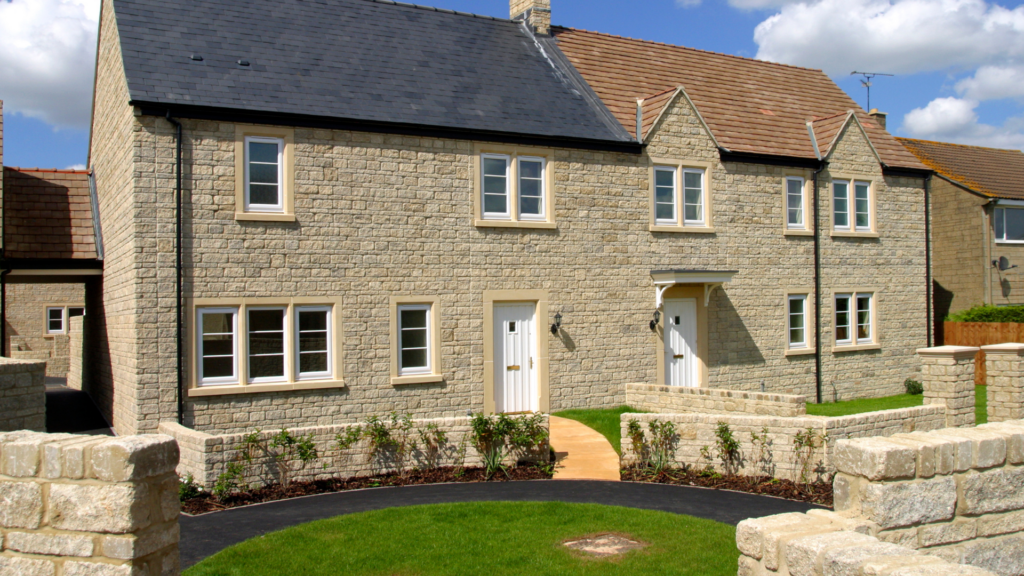£50,000 to £90,000 Mortgage Repayments Explained

Are you considering a mortgage of £50,000, £60,000, £70,000, or even £90,000? Whether you’re eyeing a modest property or looking to refinance, it’s essential to know what your monthly repayments could look like.
Understanding how factors like interest rates, loan terms, and your deposit size affect your payments can help you plan your finances confidently.
Let’s break down the key details, so you know exactly what to expect.
What Factors Influence Your Monthly Mortgage Repayments?
Your monthly mortgage repayments depend on more than just the amount you’re borrowing. Everything from the loan details to the type of mortgage you choose, and even your own financial background, can shape what you’ll end up paying each month.
Here’s a quick and simple look at the main factors:
1. Interest Rate
Your interest rate has the biggest impact on your monthly repayments. A higher rate means you pay more each month, while a lower rate keeps your payments manageable.
Your rate depends on things like the Bank of England’s base rate, the type of mortgage you choose, and even your credit score.
2. Mortgage Term
The mortgage term is how long you take to repay the loan. A longer term, like 30 years, means lower monthly payments but more interest overall.
A shorter term, like 15 years, raises your payments but saves you interest. It’s about finding the balance that works for you.
3. Loan Amount
This is straightforward: the more you borrow, the higher your repayments. For example, if you’re buying a £300,000 home with a £60,000 deposit, you’re borrowing £240,000.
And remember, larger loans also mean paying more interest over time.
4. Deposit Size
Your deposit doesn’t just reduce what you need to borrow—it can also get you a better interest rate.
Lenders offer their best rates to those with a lower loan-to-value (LTV) ratio. A bigger deposit means a lower LTV, which can lead to lower monthly repayments.
Saving a bit more upfront can really pay off here.
5. Type of Mortgage
The type of mortgage matters too. Fixed-rate mortgages keep your payments steady for a set period, usually two to five years.
With a variable or tracker mortgage, your rate can go up or down with the base rate. This could mean lower payments if rates drop, but your payments can also rise.
6. Credit Score
Your credit score tells lenders how reliable you are with money. A good credit score can help you get a lower interest rate, which reduces your monthly repayments.
If your score is low, you might have to pay a higher rate or go with a more costly lender, both of which increase your repayments.
7. Additional Fees and Costs
Many mortgages come with fees, like arrangement or valuation fees, which some lenders let you add to your loan.
This bumps up your loan amount and monthly payments. These extras are easy to miss, but they can make a big difference to your budget.
8. Property Type and Location
Certain types of properties, like high-rise flats or listed buildings, may be seen as higher risk by lenders. Similarly, properties in certain areas or even leasehold properties may come with additional considerations.
These factors could influence the interest rate offered, which in turn affects your monthly repayments.
Some lenders are more flexible than others, so it’s worth exploring if you’re buying a property that might not fit the standard mould.
9. Payment Structure: Interest-Only vs. Repayment Mortgage
With an interest-only mortgage, you’re only paying the interest each month, so your payments are lower. However, you’ll still owe the full loan amount at the end.
A repayment mortgage means you’re paying both interest and principal, so you fully own the property by the end. Interest-only mortgages can keep costs low in the short term, but you need a solid plan to repay the loan itself.
How Much Do You Need To Earn To Get a £50K to £90K Mortgage?
Most lenders will offer around 4 to 4.5 times your annual income. Here’s a rough guide:
- For a £50,000 mortgage, you’d need to earn roughly £11,000 to £12,500 a year.
- For a £60,000 mortgage, your required income would be £13,500 to £15,000.
- A £70,000 mortgage would require an income of £15,500 to £17,500.
- For an £80,000 mortgage, you’d need to earn about £18,000 to £20,000.
- Finally, for a £90,000 mortgage, your income should be at least £20,000 to £22,500.
Joint mortgages can be a handy solution if you’re concerned about income limits—by combining your earnings with a partner’s, you could boost the amount you’re eligible to borrow.
And if you’re in a lower-risk profession, like teaching or nursing, some lenders may even consider lending up to 6 times your annual income.
Curious about how much you could borrow? Try using a mortgage affordability calculator for a quick estimate based on your income and financial situation.
How Much Will Your Mortgage Cost?
Here’s what your repayments might look like depending on your chosen term and interest rate.
Monthly Repayments for a £50,000 Mortgage
| Term (Years) | 3% Interest | 4% Interest | 4.5% Interest | 5% Interest | 6% Interest | 7% Interest |
|---|---|---|---|---|---|---|
| 5 | £888 | £899 | £905 | £911 | £924 | £936 |
| 10 | £483 | £506 | £518 | £530 | £555 | £581 |
| 15 | £345 | £370 | £379 | £395 | £421 | £448 |
| 20 | £277 | £303 | £314 | £330 | £357 | £386 |
| 25 | £237 | £264 | £277 | £292 | £321 | £350 |
| 30 | £211 | £239 | £252 | £268 | £300 | £332 |
| 35 | £192 | £221 | £235 | £252 | £286 | £319 |
Monthly Repayments for a £60,000 Mortgage
| Term (Years) | 3% Interest | 4% Interest | 4.5% Interest | 5% Interest | 6% Interest | 7% Interest |
|---|---|---|---|---|---|---|
| 5 | £1,066 | £1,079 | £1,086 | £1,094 | £1,108 | £1,124 |
| 10 | £579 | £607 | £619 | £636 | £666 | £697 |
| 15 | £414 | £444 | £455 | £474 | £505 | £537 |
| 20 | £333 | £364 | £377 | £396 | £429 | £463 |
| 25 | £285 | £317 | £332 | £351 | £385 | £420 |
| 30 | £253 | £286 | £302 | £322 | £360 | £398 |
| 35 | £231 | £266 | £282 | £303 | £340 | £379 |
Monthly Repayments for a £70,000 Mortgage?
| Term (Years) | 3% Interest | 4% Interest | 4.5% Interest | 5% Interest | 6% Interest | 7% Interest |
|---|---|---|---|---|---|---|
| 5 | £1,243 | £1,259 | £1,267 | £1,276 | £1,293 | £1,311 |
| 10 | £676 | £709 | £721 | £738 | £776 | £813 |
| 15 | £483 | £518 | £531 | £554 | £589 | £627 |
| 20 | £388 | £424 | £440 | £462 | £500 | £539 |
| 25 | £332 | £369 | £387 | £408 | £449 | £490 |
| 30 | £294 | £333 | £350 | £372 | £420 | £464 |
| 35 | £269 | £311 | £329 | £352 | £394 | £442 |
Monthly Repayments for a £80,000
| Term (Years) | 3% Interest | 4% Interest | 4.5% Interest | 5% Interest | 6% Interest | 7% Interest |
|---|---|---|---|---|---|---|
| 5 | £1,421 | £1,438 | £1,448 | £1,458 | £1,478 | £1,498 |
| 10 | £769 | £810 | £824 | £855 | £887 | £930 |
| 15 | £545 | £587 | £603 | £625 | £666 | £707 |
| 20 | £442 | £482 | £499 | £525 | £567 | £612 |
| 25 | £377 | £419 | £437 | £460 | £505 | £552 |
| 30 | £336 | £380 | £397 | £420 | £471 | £521 |
| 35 | £307 | £352 | £370 | £394 | £450 | £505 |
Monthly Repayments for a £90,000 Mortgage
| Term (Years) | 3% Interest | 4% Interest | 4.5% Interest | 5% Interest | 6% Interest | 7% Interest |
|---|---|---|---|---|---|---|
| 5 | £1,598 | £1,619 | £1,629 | £1,639 | £1,663 | £1,686 |
| 10 | £874 | £911 | £928 | £973 | £1,009 | £1,063 |
| 15 | £617 | £657 | £675 | £696 | £742 | £789 |
| 20 | £499 | £551 | £567 | £593 | £639 | £686 |
| 25 | £426 | £479 | £499 | £523 | £573 | £625 |
| 30 | £379 | £428 | £446 | £473 | £529 | £577 |
| 35 | £345 | £396 | £415 | £442 | £505 | £569 |
How To Get a Mortgage?
Getting a mortgage can feel like a big task, but breaking it down into steps can make it a lot easier. Here’s what you need to do:
- Save for a Deposit. Aim for at least 5-10% of the property value. The bigger your deposit, the better your interest rates will be.
- Check Your Credit Report. Lenders will look at your credit history to determine your reliability. Make sure your credit report is accurate and improve your score if needed.
- Get Pre-Approved. This will give you an idea of how much you can borrow and shows sellers that you’re serious.
- Gather Your Documents. You’ll need proof of income, bank statements, and ID. Having these ready can speed up the process.
- Use a Mortgage Broker. Brokers can help find the best deals and guide you through the process—especially helpful if you’re self-employed or have a low income.

What If You’re Self-Employed?
If you’re self-employed, securing a mortgage of £50,000, £60,000, or even £90,000 can feel like a bit of a hurdle. But don’t worry—it’s definitely possible with the right preparation.
To strengthen your mortgage application, you’ll need to provide:
- Proof of Income: One to three years of certified accounts or SA302 forms from HMRC.
- Bank Statements: Business and personal bank statements for the last six months.
- Proof of Deposit: Evidence of your deposit source (e.g., savings or gift).
- Income Verification: Contracts or recent invoices to show stable income.
- Credit Report: A strong credit score to prove reliability.
- Business Details: Profit and loss statements or details of shareholding if applicable.
Lenders want to know you can comfortably make monthly repayments. Being able to provide comprehensive documentation will help show that, even with the unpredictability of self-employment, you’re a reliable borrower.
Key Takeaways
- Monthly repayments vary based on the loan amount, interest rate, and term length. A longer term means lower payments but more interest overall.
- You’ll need at least £11,000 to £22,500 annual income for a £50,000 to £90,000 mortgage, based on lenders offering around 4 to 4.5 times your yearly income.
- If you’re self-employed, aim to have 1-3 years of income records ready. A stable income and a larger deposit help boost approval chances.
- Joint mortgages can increase your borrowing limit by combining your income with a partner’s, which is helpful if your income alone isn’t enough.
The Bottom Line: How To Get the Best Mortgage Deal?
To get the best mortgage deal, a little preparation goes a long way. Start by downloading your credit reports and checking for any errors.
Every bit counts, so save as much as you can for a deposit, and get your documents in order—proof of income, bank statements, and ID are all essentials.
Having these ready makes the whole process much smoother. 😌
A mortgage broker can also be a huge help. Here’s what they can do for you:
- Find mortgage deals that aren’t available if you go it alone.
- Negotiate with suitable lenders to secure a cheaper mortgage.
- Help you prepare the documents needed to secure the right mortgage.
- Give you tailored advice based on your financial situation.
- Guide you through the whole mortgage process, so you can save time and focus on other important matters.
So whether you’re self-employed, have a smaller budget, or are buying a property that’s a bit different, a good mortgage broker can help you secure the best deal.
Got more questions? Don’t hesitate to reach out—we can put you in touch with a reliable mortgage broker to guide you and help you find the perfect mortgage deal.
Get Matched With Your Dream Mortgage Advisor...

Frequently asked questions
Can I get a bad credit mortgage?
Yes, you can, but you might need to provide a larger deposit—typically around 20-25% of the property value. A mortgage broker can help you find lenders that specialise in bad credit mortgages.
What documents do I need to get a mortgage in the UK?
You’ll need proof of income (like payslips or tax returns), bank statements, proof of ID (passport or driving licence), and proof of address (utility bills or council tax statements).
How much mortgage should I get?
Most lenders will offer 4 to 4.5 times your annual income. It’s important to make sure the repayments fit comfortably within your monthly budget—use a mortgage calculator to get a clearer idea of what you can afford.
Should I go for a longer or shorter mortgage term?
It depends on your financial situation. A shorter term means paying more monthly but less interest overall, while a longer term lowers your monthly payments but increases the total interest paid.




